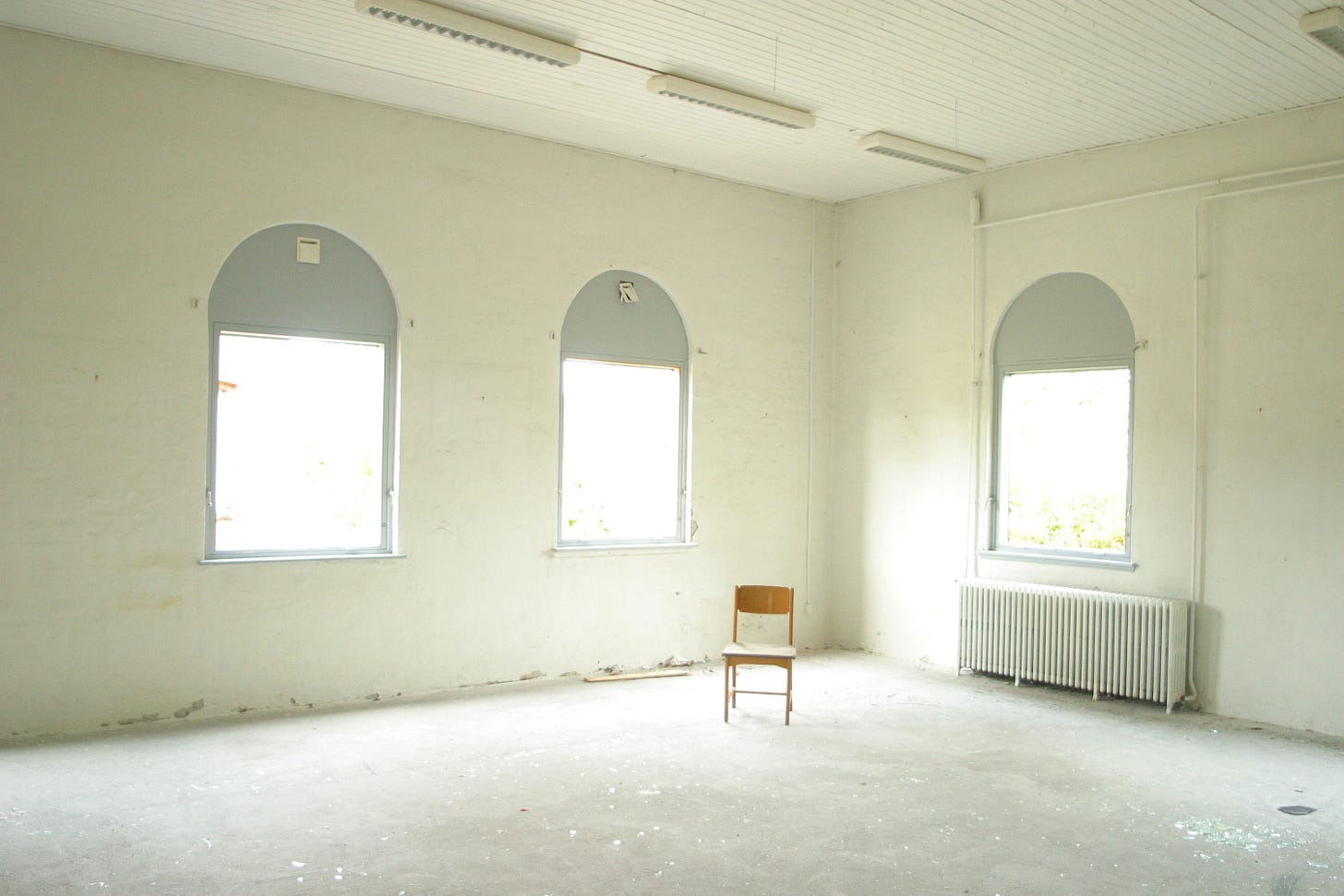Owning nothing won’t make us happy, so why are we going along with it?
Happy New Year to everyone. Thanks for sticking with us into 2023. Next week’s newsletter will be a dispatch from Davos, where I’ll be reporting on the World Economic Forum’s annual meeting for True North. You can follow along with my coverage over at True North or on my Twitter.
One of the more pervasive criticisms of the World Economic Forum hinges on a vision for the future a WEF contributor laid out of a world in which we own nothing, have no privacy, and, somehow, are happy.
“Everything you considered a product, has now become a service,” the author writes, ostensibly from 2030.
Your living space is used by other people when you aren’t there; kitchen equipment is delivered to your door when you need it, and then returned after; shopping is just about choosing things to use, or you can rejoice in letting “the algorithm” choose for you.
The 2016 essay may have been written as a call to action, but it’s proving to be a prophesy.
I was going through some old boxes the other day and had to decide what to do with dozens of DVDs I own but haven’t had to use in many years. Why would I? Between Prime Video, Netflix, Crave, and Disney+, I have access to millions of movies and television episodes, just as I do with songs through Spotify.
I have a world of entertainment at my fingertips, yet I own none of it. Does it matter? It does if the real owners decide they no longer wish to share it. Instead of a DVD I have for as long as it works, my ability to watch a movie I love is at the mercy of someone else’s willingness to let me watch it. Books go out of print and some films cease to be distributed. When this happens, only those who owned originals readily have access to them.
Despite this, the convenience of the subscription model for customers (and the profitability of it for producers) is making it the norm.
Instead of buying software outright, most companies are forcing – or strongly encouraging – users to take out monthly licenses that will cost multiple times what buying programs outright would have.
There are some benefits to this, of course, which is why people go along with it. There are movies I’d watch on Netflix that I’d never buy on DVD. Paying a monthly software license may be worth it to ensure my version doesn’t become outdated or obsolete.
With more expensive items, paying less up front may be enticing (or necessary) for some people, even if they end up paying more over time.
In the long run the renter generally loses.
In Ontario, there’s a bizarre practice among many, if not most, homeowners: renting water heaters. You’re allowed to buy them, but the companies selling them would much prefer you pay them $30 to $40 per month in perpetuity for something everyone else in Canada is fine just buying outright. You end up paying up to nine times what you would have to buy the water heater.
On a larger scale, urban activists routinely advocate against development of detached single-family homes. Their ideal cities involve more renters than buyers. With housing more than film or music, your ownership of nothing massively enriches someone else over time, who profits off your rent payments and on the asset itself.
“Owning nothing” doesn’t mean that no one owns anything – it means that you don’t. This is why it is such a ridiculous call coming from the World Economic Forum, an organization whose members will continue to own things and profit from our need to rent whatever we want to use from them.
I was in Vienna last week and was walking around Stephandsom, one of the tallest churches in the world. As I was marvelling at its beauty, I noticed a gaggle of tourists experiencing the splendor and bustle of Stephensplatz – in virtual reality.


I’m sure they removed the headsets and took in a real look at some point, but the display was an eerie reminder that some people are unfazed by substitutes even when the real deal is quite literally right in front of them.
Virtual reality is fine as a brief escape from reality, but it shouldn’t be viewed as a replacement for it. I can’t help but wonder if it is helping usher in a comfort with owning nothing. If it feels like you are experiencing something just the same, maybe it doesn’t matter for most people.
Just as an exchange with an AI chatbot is not a conversation with a real person, you haven’t gone anywhere if you take a trip in the Metaverse.
While the novelty of having virtually unlimited access to film, music, landmarks, and… erm, water heaters, may delight us in the short term, these services are furthering the divide between the elites and the masses. The less we own, the more we need from them.
Owning nothing costs a lot more, and won’t make us happy.
Now’s the awkward time where I ask you to subscribe after a column about the perils of subscriptions. Nevertheless, this newsletter is made possible by the generous support of our paid subscribers, whom we thank for helping keep this going. As we approach the one-year anniversary of the Freedom Convoy, I’d be remiss to not mention for our newcomers that I have a book about the protest which I’d encourage you to check out if you haven’t already.



Your "take" on things and your sense of humor are delightful. Keep up the awesome work Andrew.
"In Ontario, there’s a bizarre practice among many, if not most, homeowners: renting water heaters." Weird! Despite living in Ontario for a few years, I had no idea about this.